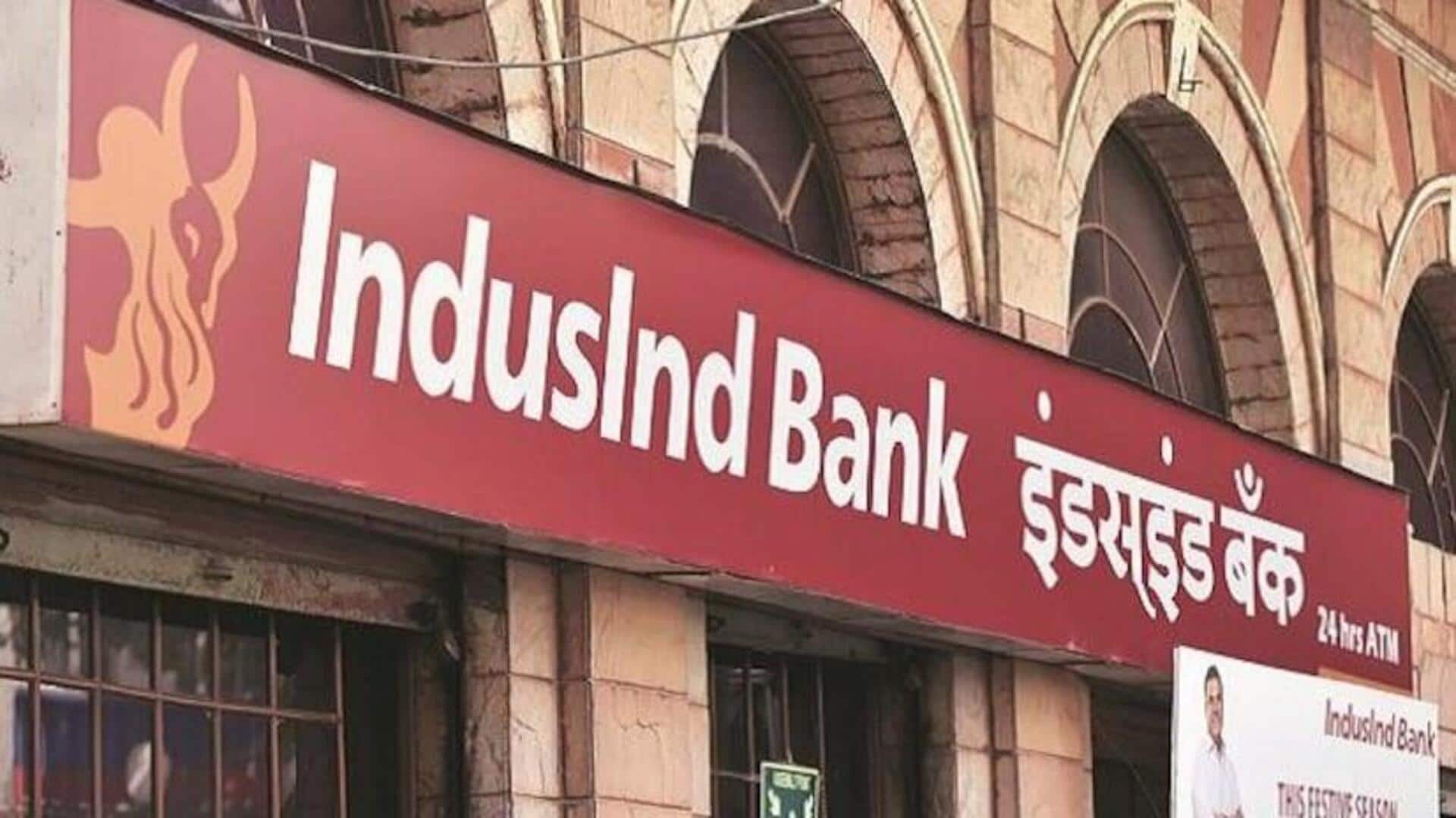
IndusInd Bank's top executives may resign after ₹1,979cr loss
What's the story
IndusInd Bank is staring at a leadership crisis, after the discovery of discrepancies in its derivatives portfolio to the tune of ₹1,979 crore.
At least three senior executives are expected to resign in the coming months, CNBC-TV18 reported.
This includes CEO Sumant Kathpalia and Deputy CEO Arun Khurana, who was in charge of global markets, including the derivatives portfolio.
Succession strategy
RBI's directive prompts succession planning
Since the Reserve Bank of India (RBI) has only extended Kathpalia's term by one year, the board has been asked to start succession planning.
Reportedly, the RBI has asked the board to begin identifying potential CEO successors and submit a shortlist four to six months before Kathpalia's term ends in March 2026.
When asked about this and impending departures, an IndusInd Bank spokesperson denied any knowledge of such communication or reports about management changes.
Financial fallout
PwC's review reveals significant financial impact
An external review by PricewaterhouseCoopers (PwC) has pegged the financial impact of the derivatives issue at ₹1,979 crore.
The estimate matches market predictions and is slightly lower than the bank's internal assessment.
The Mumbai-based private lender had first reported discrepancies in derivative account balances on March 10, after an internal review over the last five to seven years.
Statement
IndusInd Bank's disclosure
In a March 11 interview with CNBC-TV18, Kathpalia estimated the post-tax net impact at ₹1,520 crore and gross hit at around ₹1,970 crore.
In its latest disclosure on April 15, IndusInd Bank said the negative impact will be ₹1,979 crore. The figure roughly aligns with RBI's own assessment of a ₹2,000 crore hit.
The bank announced it would reflect this impact in its financial statements for FY 2024-25, while enhancing internal controls related to derivative accounting operations.
Earnings outlook
CEO's future projections
During the March 11 interview, Kathpalia revealed the issue was first discovered in October 2024.
He said, "We found this anomaly around October, and that is when we started our internal assessment and brought in an external agency. At the time, we didn't know the full extent."
Despite the financial setback, he projected a positive outlook for future earnings: "The full year will not be a loss at all. And I think Q4 will also be a profit."